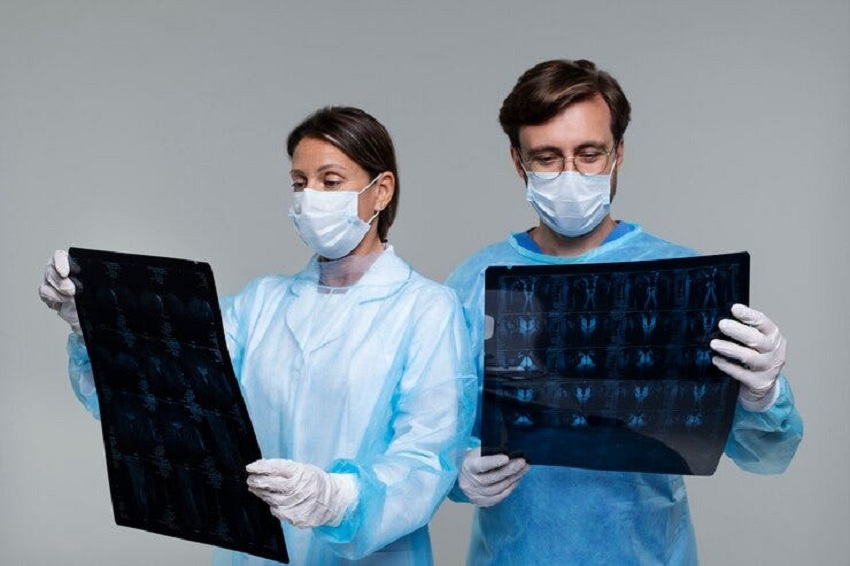Things to Consider While Selecting The Best Diagnostic Radiology Specialist
4 min read
Diagnostic radiology plays a crucial role in modern healthcare, providing invaluable insights into the human body’s structure and function. From detecting diseases to guiding treatment decisions, radiologists are essential members of the healthcare team, responsible for interpreting medical images and communicating their findings to other physicians. Choosing the right diagnostic radiology specialist is crucial for ensuring accurate diagnoses and effective treatment plans. In this blog post, we will explore the key factors to consider when selecting the top diagnostic radiology specialist for your healthcare needs.
- Board Certification and Licensure
When choosing a diagnostic radiology specialist, it is essential to ensure that they are board-certified and licensed to practice in your state. Board certification demonstrates that the radiologist has completed rigorous training and passed comprehensive exams in their field, ensuring a high level of expertise and knowledge.
- Experience and Subspecialty
Consider the radiologist’s experience and any subspecialties they may have. Radiologists with extensive experience in specific areas, such as neuroradiology, musculoskeletal radiology, or pediatric radiology, may be better equipped to handle complex cases or provide specialized care.
- Communication Skills
Effective communication is crucial in diagnostic radiology, as radiologists must collaborate with other healthcare providers and clearly explain their findings to patients. Look for a radiologist who is known for their excellent communication skills and ability to translate complex medical terminology into understandable language.
- Reputation and Peer Recognition
Research the radiologist’s reputation within the medical community by asking for referrals from your primary care physician or other healthcare providers. Look for radiologists who are recognized by their peers for their expertise, professionalism, and dedication to patient care. By choosing a radiologist who is well-regarded within the medical community, you can have confidence in the quality of care you will receive and trust that your diagnostic imaging needs will be met with expertise and professionalism. Peer recognition serves as a testament to a radiologist’s proficiency and dedication to delivering high standards of care, ensuring that you are in capable hands for your diagnostic radiology needs.
- Imaging Technology and Facilities
The quality of imaging technology and facilities can significantly impact the accuracy and efficiency of diagnostic radiology. Choose a radiologist who works in a facility equipped with state-of-the-art imaging equipment, such as high-resolution MRI, CT, and PET scanners, to ensure the best possible diagnostic results.
- Patient-Centered Approach
A patient-centered approach is essential in diagnostic radiology, as radiologists must prioritize patient comfort, safety, and well-being. Look for a radiologist who takes the time to explain the imaging process, addresses your concerns, and ensures that you are comfortable throughout the procedure.
- Timeliness and Responsiveness
Timely and responsive communication is critical in diagnostic radiology, as delays in reporting imaging findings can significantly impact patient care and treatment decisions. When choosing a radiologist, it is essential to select one who is known for providing prompt and accurate reports to referring physicians.
Radiologists who prioritize timely communication understand the importance of delivering results as soon as possible, particularly in urgent or critical situations. They have efficient systems in place to expedite the reporting process, ensuring that referring physicians receive the information they need to make informed treatment decisions without delay.
Moreover, accurate and well-structured reports are crucial for effective communication in radiology. Radiologists who excel in this area provide clear, concise, and actionable findings that leave no room for ambiguity or misinterpretation. They use standardized terminology and structured reporting formats to convey information effectively, making it easier for referring physicians to understand and act upon the results.
By choosing a radiologist who is known for their prompt and accurate reporting, referring physicians can have confidence in the quality of the information they receive and the ability to provide timely and appropriate care to their patients. This collaborative approach to communication is essential for ensuring optimal patient outcomes and promoting effective teamwork within the healthcare system.
- Continuing Education and Research
Diagnostic radiology is a rapidly evolving field, with new technologies and techniques being developed constantly. Look for a radiologist who is committed to continuing education and research, staying up-to-date with the latest advancements in the field and incorporating them into their practice.
- Collaboration with Other Specialists
Diagnostic radiology is a highly collaborative field, with radiologists working closely alongside other healthcare providers to ensure accurate diagnoses and effective treatment plans for patients. When choosing a diagnostic radiology specialist, it is crucial to select one who is known for their ability to collaborate effectively with other specialists, such as oncologists, neurologists, and orthopedic surgeons.
Effective collaboration between radiologists and other specialists is essential for providing comprehensive, patient-centered care. By working together, these healthcare professionals can share their unique expertise, discuss complex cases, and develop tailored treatment strategies that address the patient’s specific needs. This multidisciplinary approach ensures that all aspects of the patient’s condition are considered, leading to more accurate diagnoses and better treatment outcomes.
Radiologists who excel at collaboration are often recognized by their peers for their strong communication skills, ability to explain complex imaging findings, and willingness to engage in open dialogue with other specialists. They understand the importance of teamwork in delivering high-quality patient care and are committed to fostering positive working relationships with their colleagues across various medical disciplines.
By choosing a diagnostic radiology specialist who prioritizes collaboration, patients can benefit from the combined expertise of a diverse team of healthcare providers, ensuring that they receive the most comprehensive and effective care possible.
- Accreditation and Quality Assurance
Look for American radiology specailists who work in a facility that is accredited by organizations and ensures that the facility meets rigorous standards for imaging quality, safety, and patient care.
By considering these factors when choosing a diagnostic radiology specialist, you can ensure that you receive high-quality, patient-centered care and accurate diagnoses. Remember, your health is your most valuable asset, and choosing the right radiologist can make all the difference in your healthcare journey.







